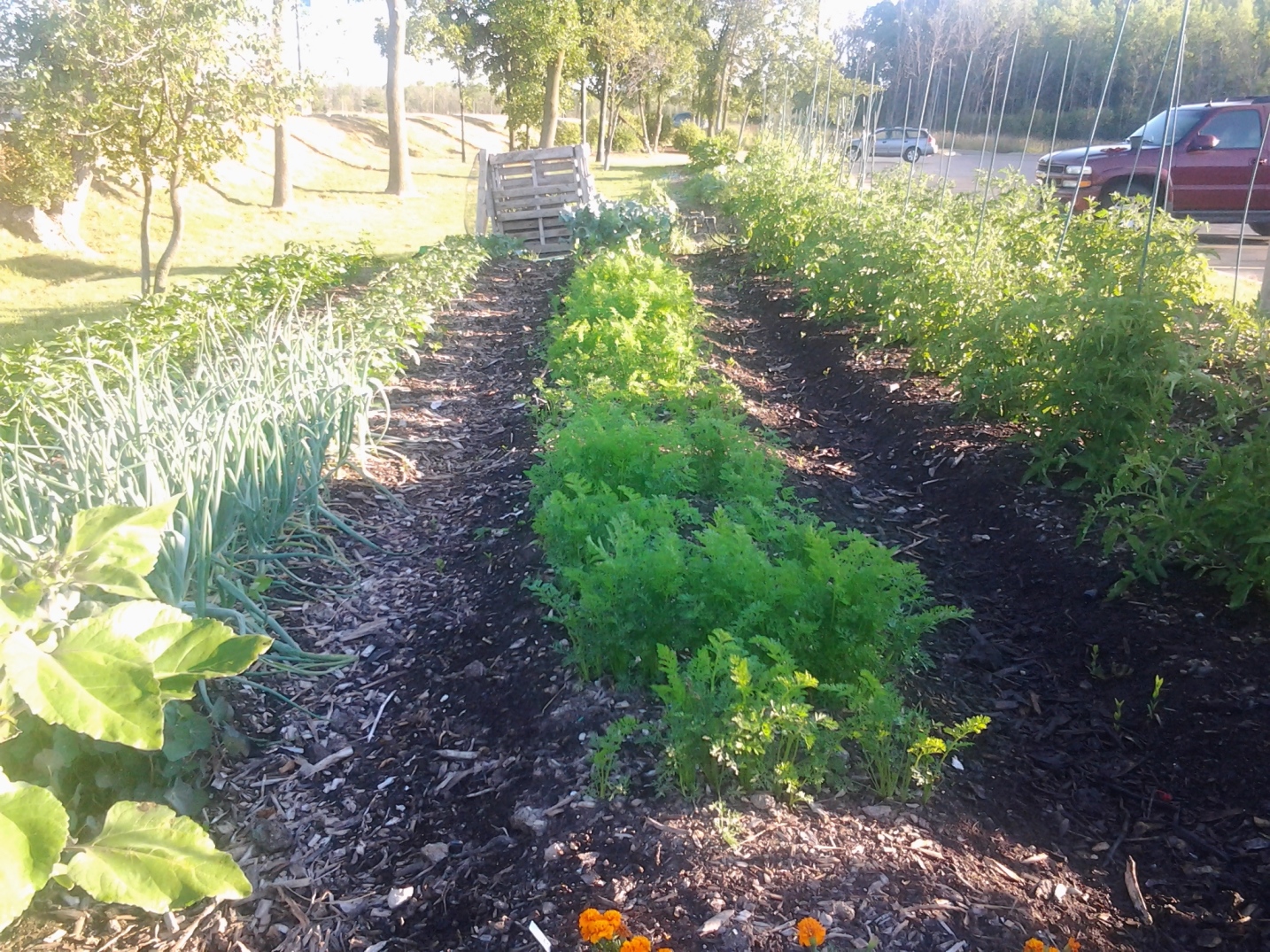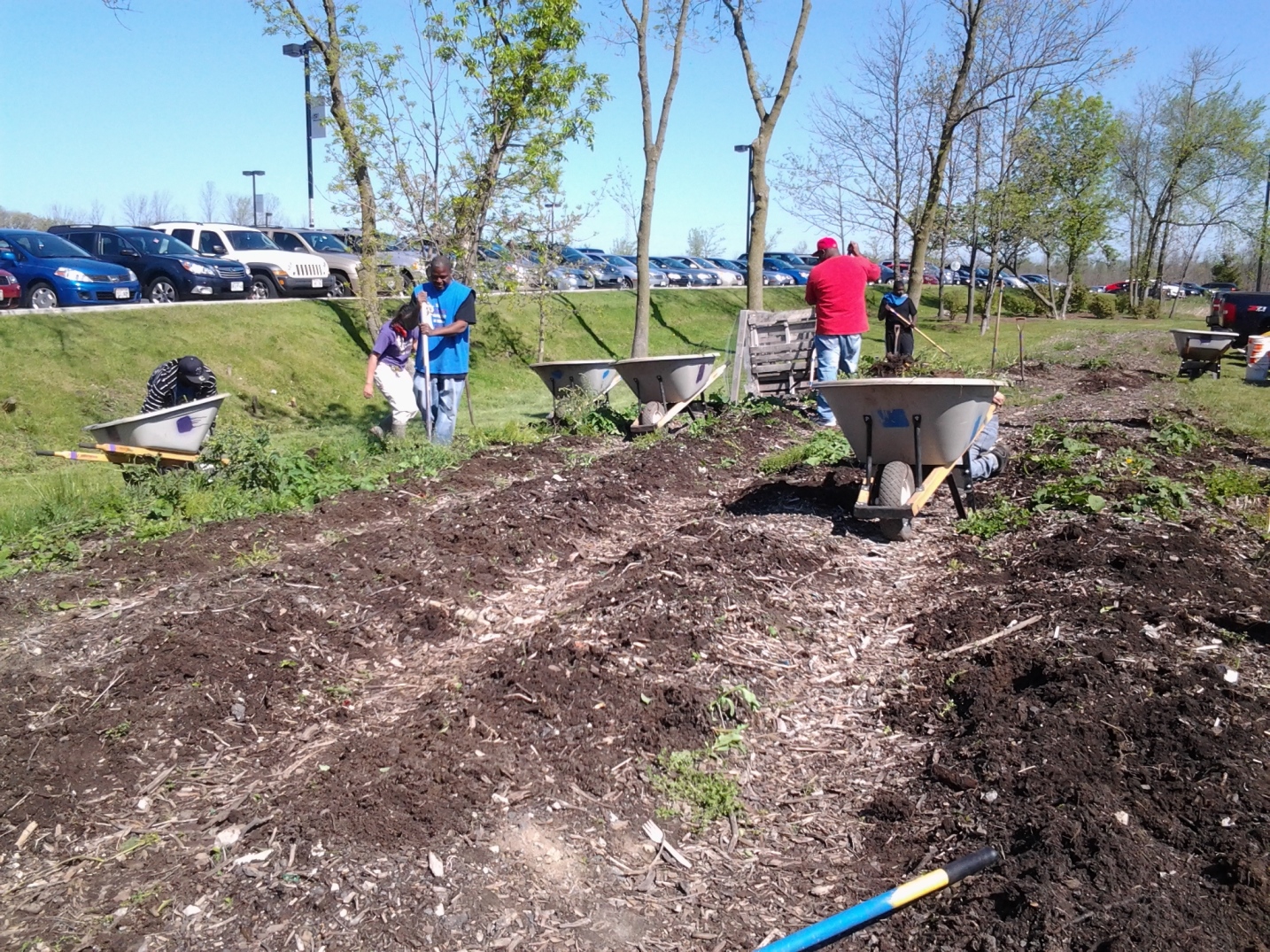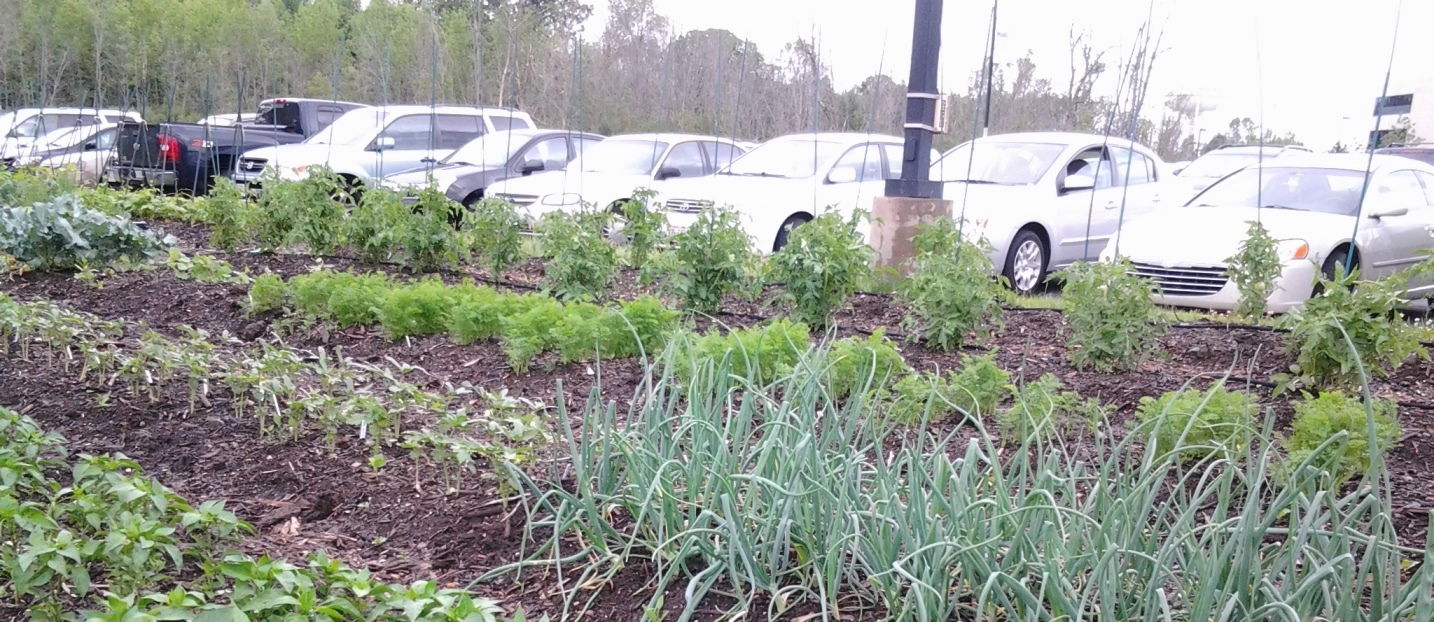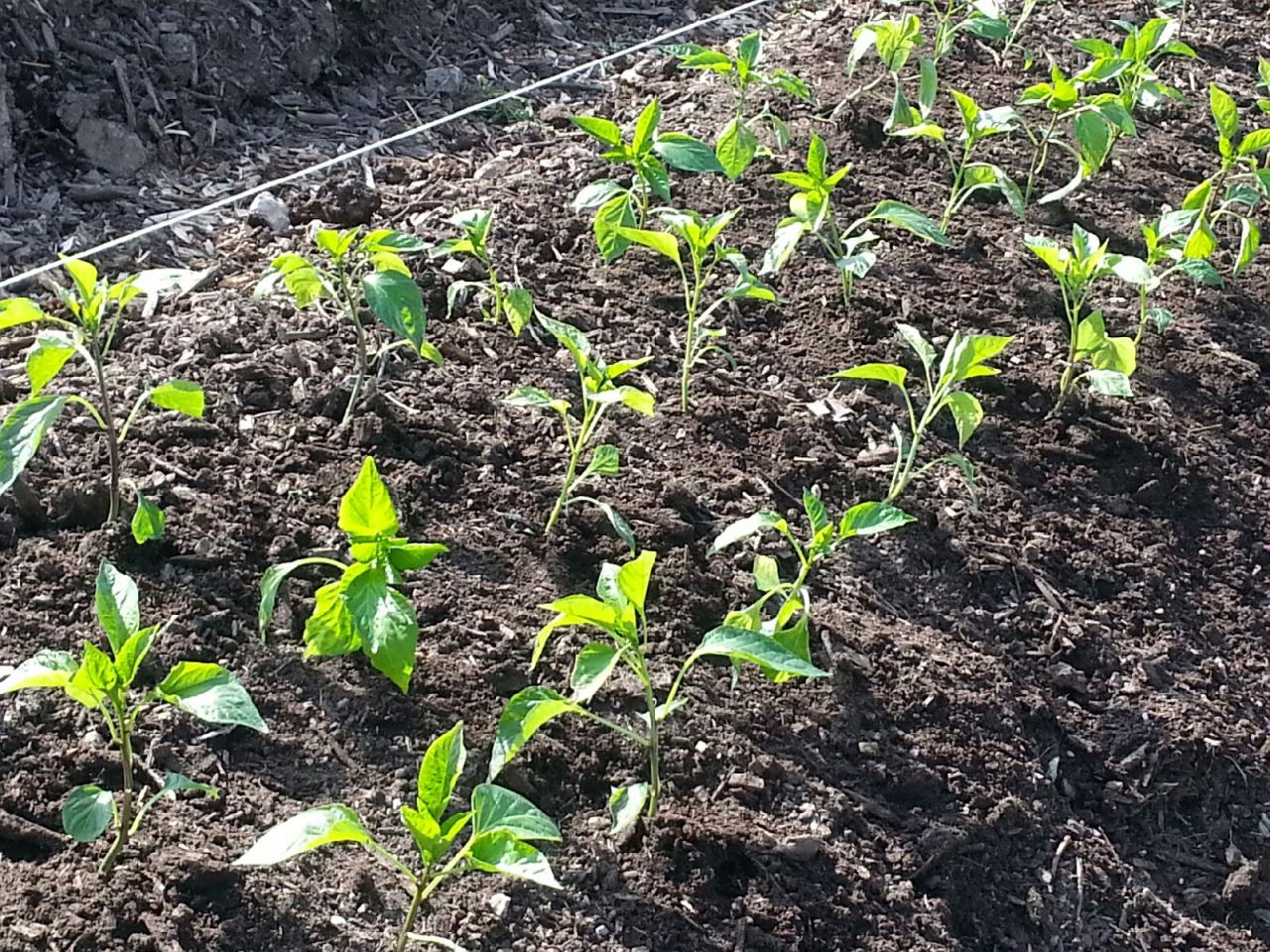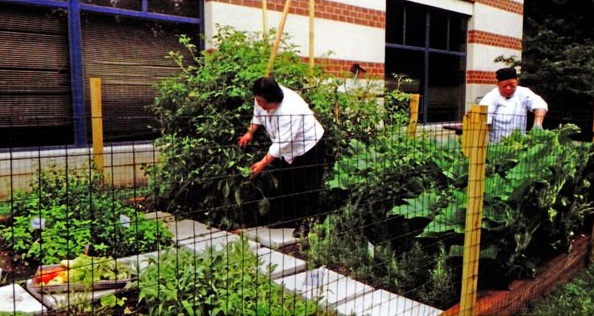Garden Planning
There are many ways to grow food on corporate campuses. Popular methods include:
- Container Gardens: These gardens may include windowsill boxes, hanging baskets, and stand-alone planters with soil.
- Raised Bed Gardens: Raised beds are higher than ground level, with the soil mounded or surrounded by a frame to keep it in place.
- In-Ground Garden: The “typical” garden—a plot is dug or tilled to remove plant matter and amendments are added to the soil.
- Hydroponic Gardens: Hydroponic gardens use water and nutrient-rich solutions as a growing medium instead of soil. Leafy greens and herbs grow especially well in these environments.
The available space on campus, your desired crops, and staff capacity will inform what kind of garden to grow. For example, if a small indoor space is available, consider a hydroponic system or growing containers of herbs. If your dream is to harvest hundreds of pounds of tomatoes and cucumbers to feature in the onsite café, try a raised bed garden or an in-ground garden managed by an outside grower. And if the vision is to have a community garden where associates tend their own crops, consider a collection of small raised beds.
Whichever type of garden you choose, it is easiest to start out with a small growing space and then add additional components as time allows. Consider starting with a pilot project and then taking a step back to assess its time and energy requirements. Scaling up is always easier than scaling down.
Additional Resources:
The Vegetable Gardener’s Container Bible by Edward C. Smith
Hydroponics for the Home Gardener by Stewart Kenyon
Square Foot Gardening: A New Way to Garden in Less Space with Less Work by Mel Bartholomew
Four Season Harvest: Organic Vegetables from Your Home Garden All Year Long by Elliot Coleman
